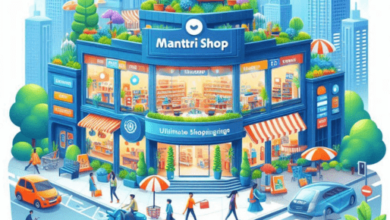Differences Between Telephone Mystery Shopping and Mystery Shopping In Person

Did you manage to hear about this amazing new tool that most businesses these days are using to benefit their business? Well, it is known as mystery shopping and businesses are all about it. Companies are using this service to improve their services and quality of business. In this type of shopping, individuals are hired to pose as customers and then take a look at the operations of the business to give feedback. There are two primary types of mystery shopping: telephone mystery shopping and mystery shopping in person. Each has its own unique aspects and benefits. Let us see what differences exist between these two types.
Telephone Mystery Shopping
Telephone mystery shopping is all about assessing the quality of customer service over the phone. Here are some key points:
- Focus on Communication Skills: When mystery shopping via phone, the primary focus is on evaluating the communication skills of the staff. This includes how they greet callers, their tone of voice, friendliness, and how effectively they provide information or resolve issues.
- Convenience and Cost-Effectiveness: Telephone mystery shopping is generally more convenient and cost-effective. There’s no need for the shopper to travel, which saves time and expenses related to transportation.
- Immediate Feedback: Phone interactions can be recorded or monitored in real-time, allowing businesses to receive immediate feedback. This can be particularly useful for training and development purposes.
- Limited Scope: The main drawback of telephone mystery shopping is its limited scope. It can only assess phone-based interactions, so it misses out on evaluating the physical aspects of the business, such as cleanliness, product displays, and the overall in-store atmosphere.
Mystery Shopping In Person
Secret shopping in person involves visiting a physical location to evaluate various aspects of the business. Here’s what sets it apart:
- Comprehensive Evaluation: In-person mystery shopping provides a more comprehensive evaluation. Shoppers can assess not only the customer service but also the physical environment, product quality, and overall ambiance of the store or business.
- Observing Non-Verbal Cues: Personal interactions allow shoppers to observe non-verbal cues such as body language, facial expressions, and the overall demeanor of the staff, which can be critical in assessing customer service.
- Detailed Feedback: In-person visits often result in more detailed and nuanced feedback. Shoppers can provide insights on a wide range of factors, from how they were greeted to the tidiness of the store and the ease of finding products.
- Higher Costs and Logistics: This type of mystery shopping can be more expensive and logistically challenging. It involves travel costs, time spent on-site, and sometimes even the purchase of products or services.
Choosing the Right Approach
The choice between telephone mystery shopping and in-person mystery shopping depends on the specific goals and needs of the business.
- For Phone-Based Businesses: If the primary customer interaction is over the phone, such as in call centers or customer support departments, telephone mystery shopping is ideal. It helps ensure that customers receive excellent service every time they call.
- For Retail and Hospitality: Businesses like retail stores, restaurants, and hotels benefit more from in-person mystery shopping. It allows them to get a full picture of the customer experience, from the moment customers walk in until they leave.
- Blended Approach: Some businesses might opt for a blended approach, using both telephone and in-person mystery shopping to cover all aspects of their customer interactions.
Conclusion
Both telephone mystery audit and mystery shopping in person play vital roles in helping businesses understand and improve their customer service. While telephone mystery shopping is great for evaluating communication skills and providing cost-effective feedback, in-person mystery shopping offers a more comprehensive evaluation of the overall customer experience. By choosing the right type of mystery shopping, businesses can ensure they are meeting their customers’ needs and continually improving their service.

